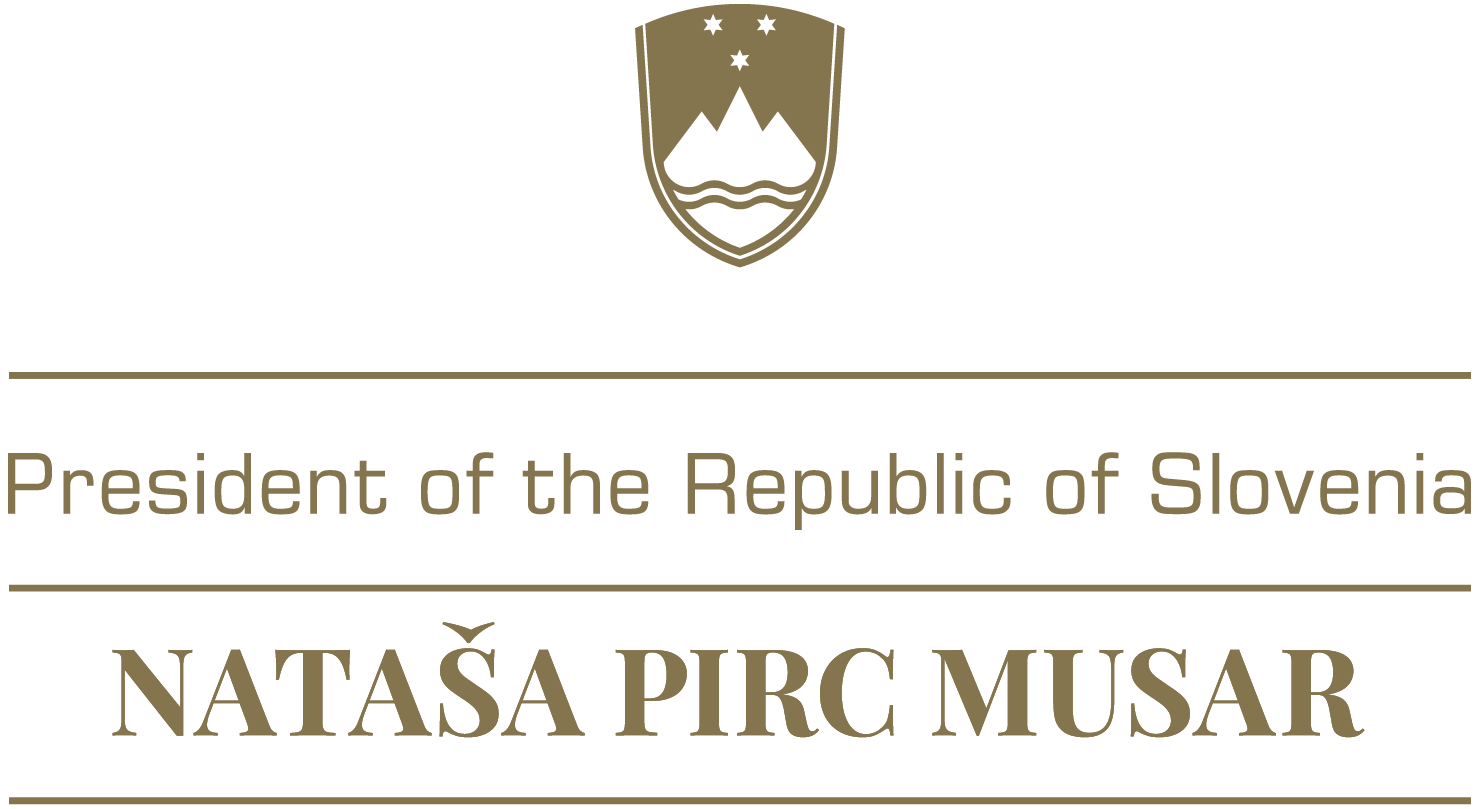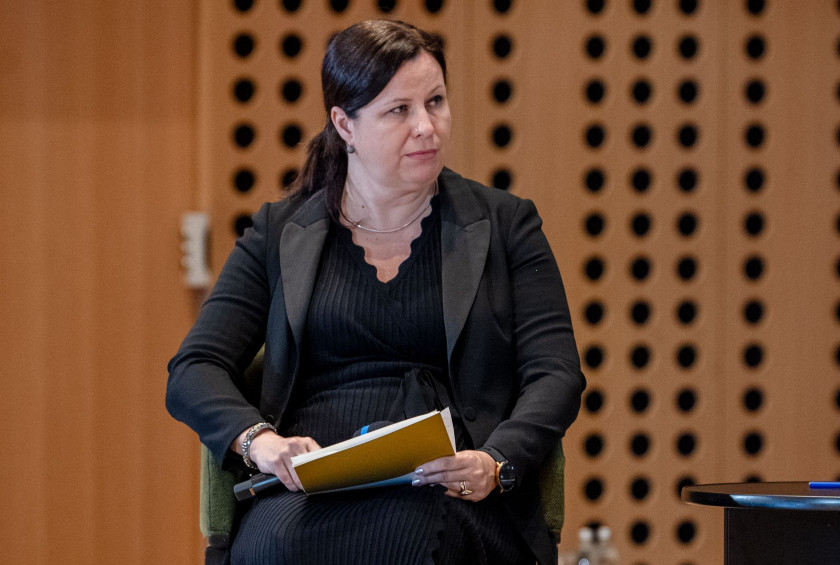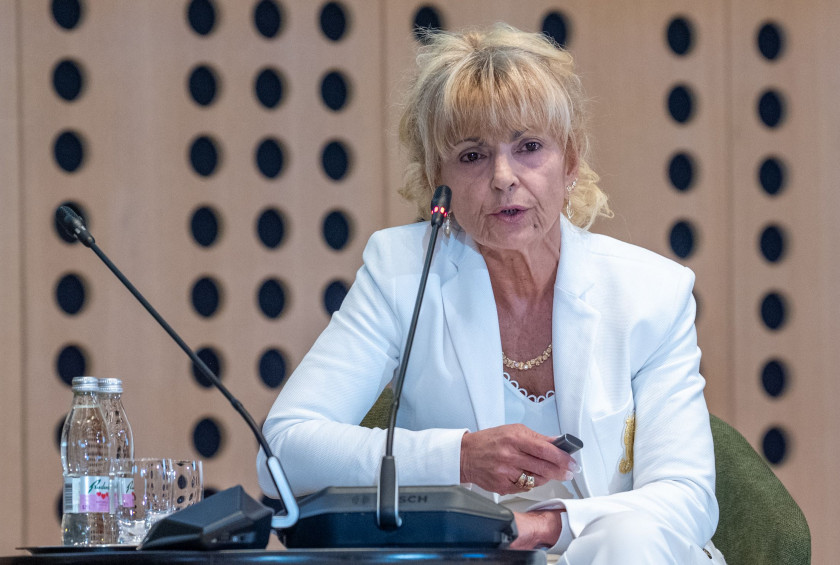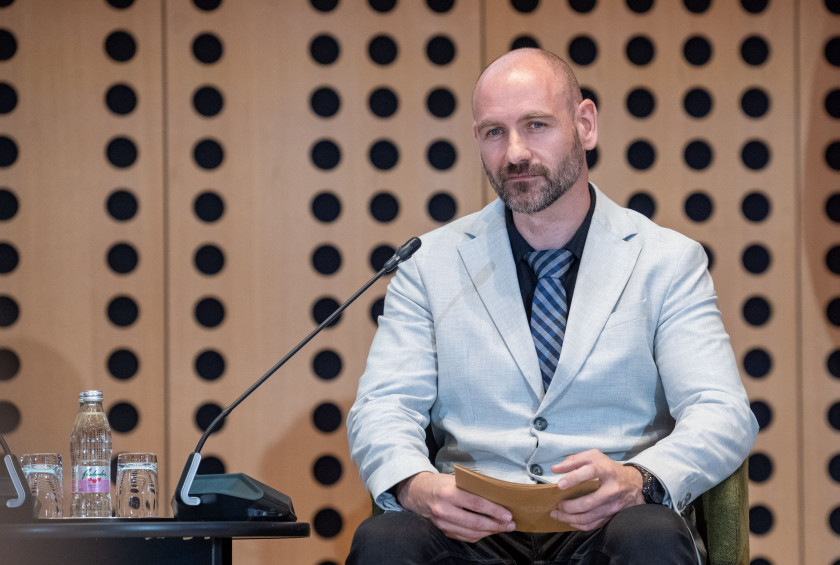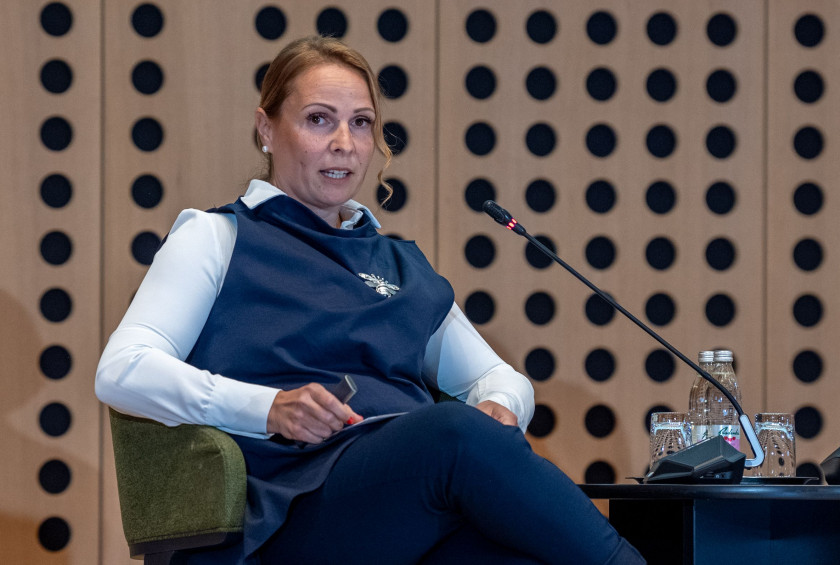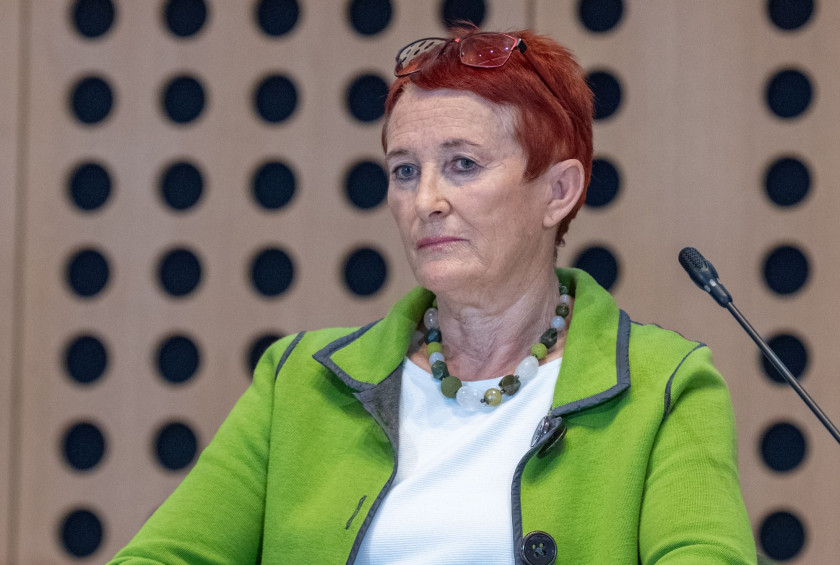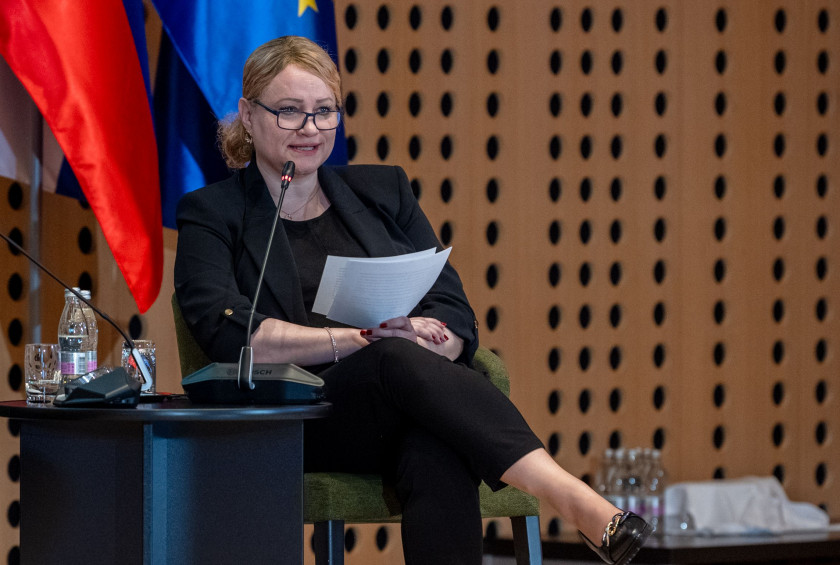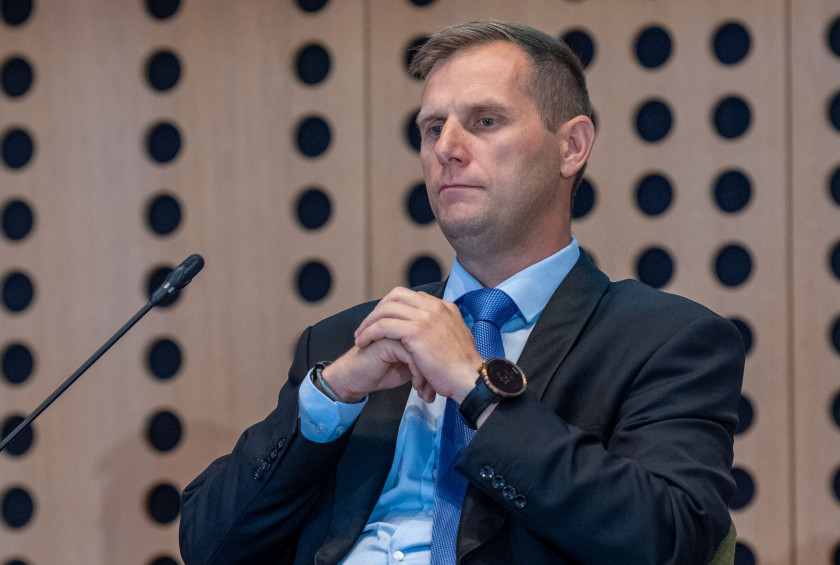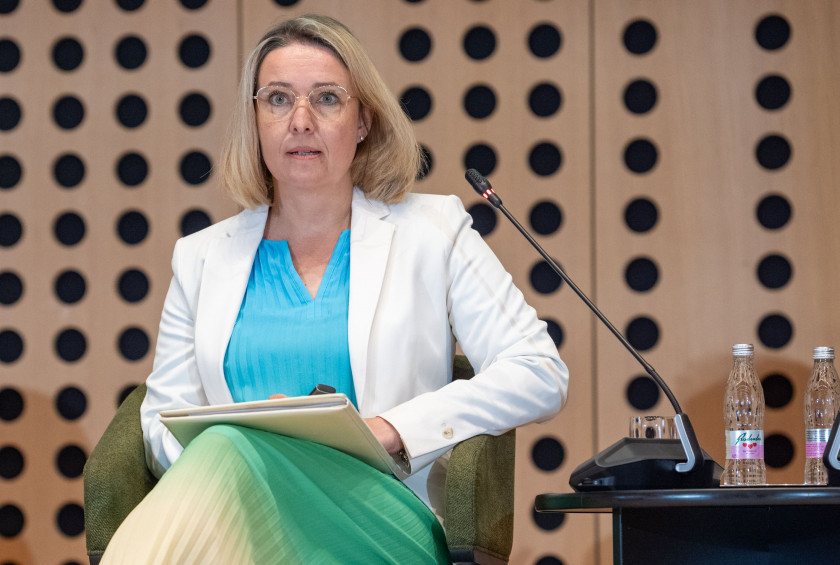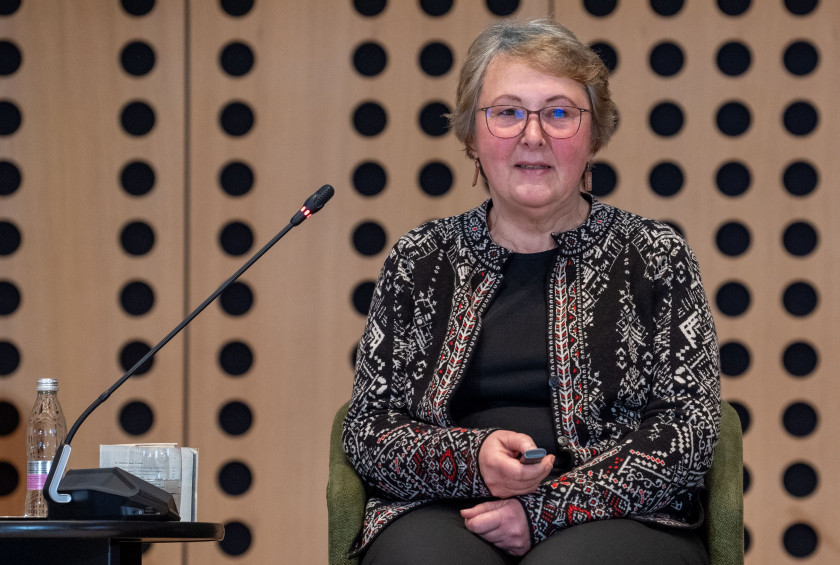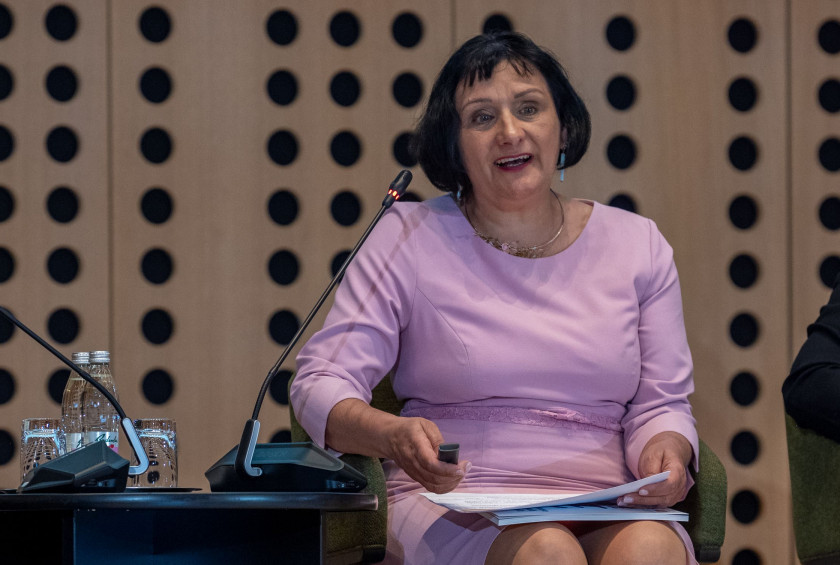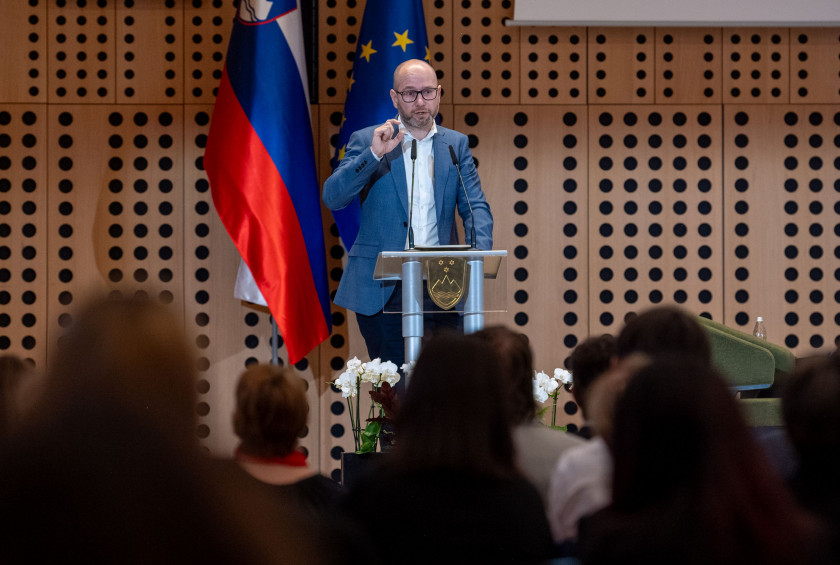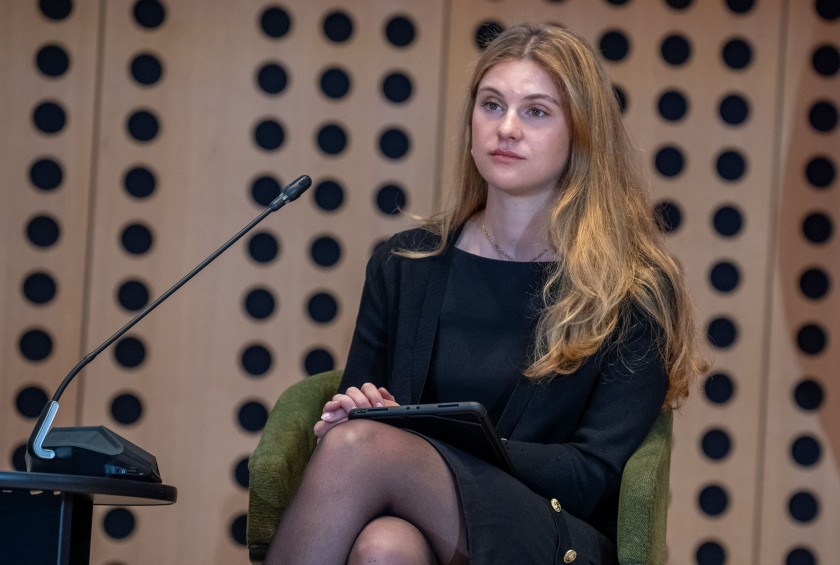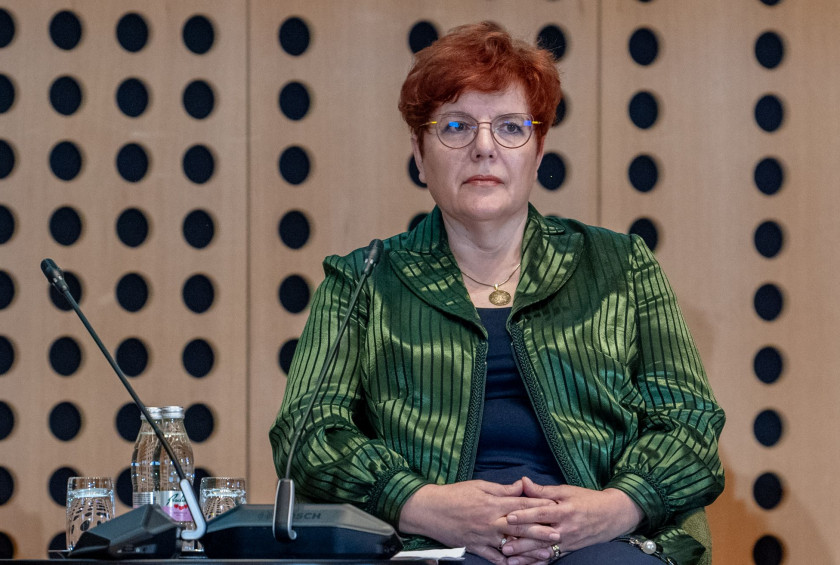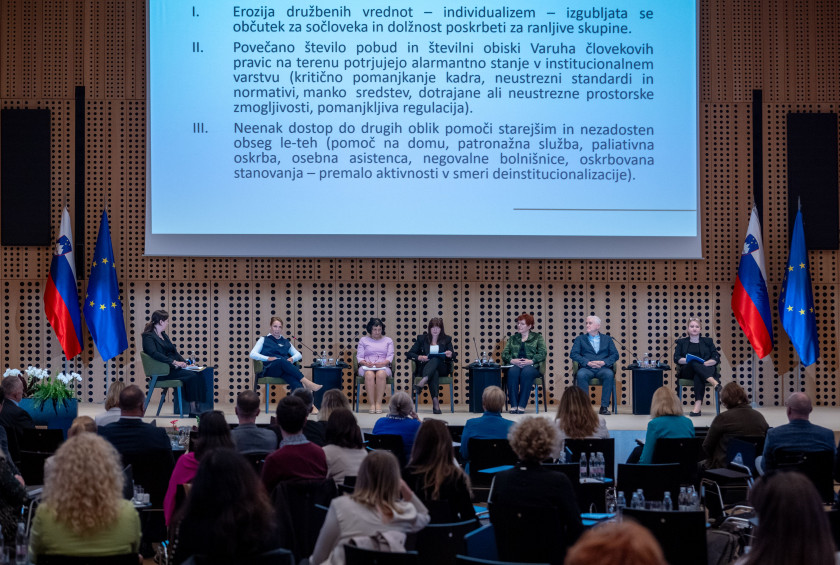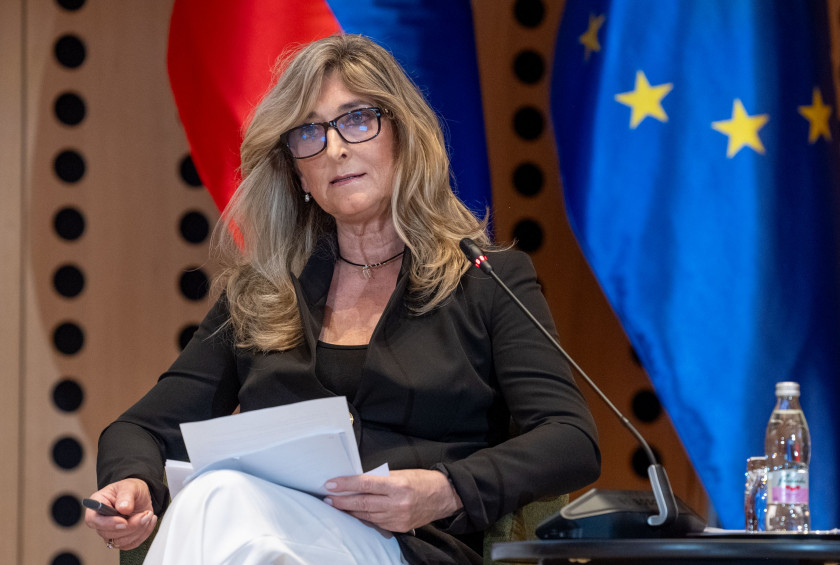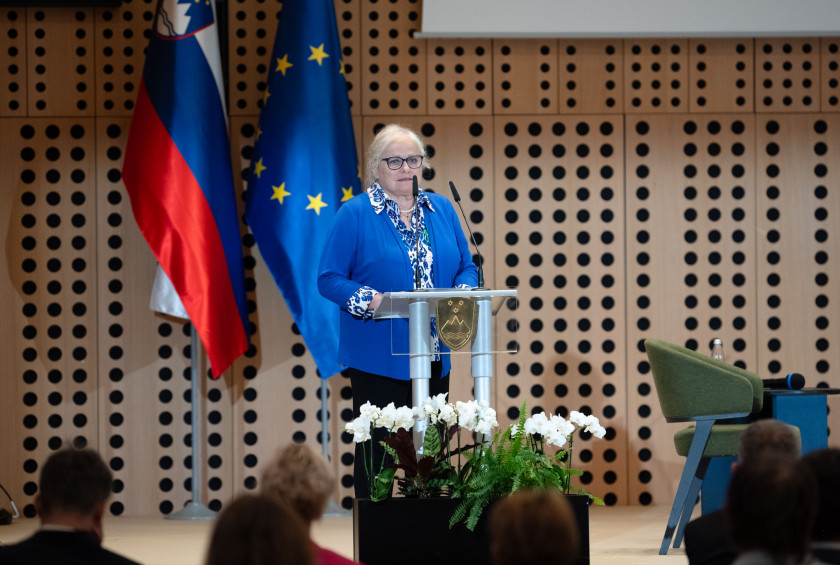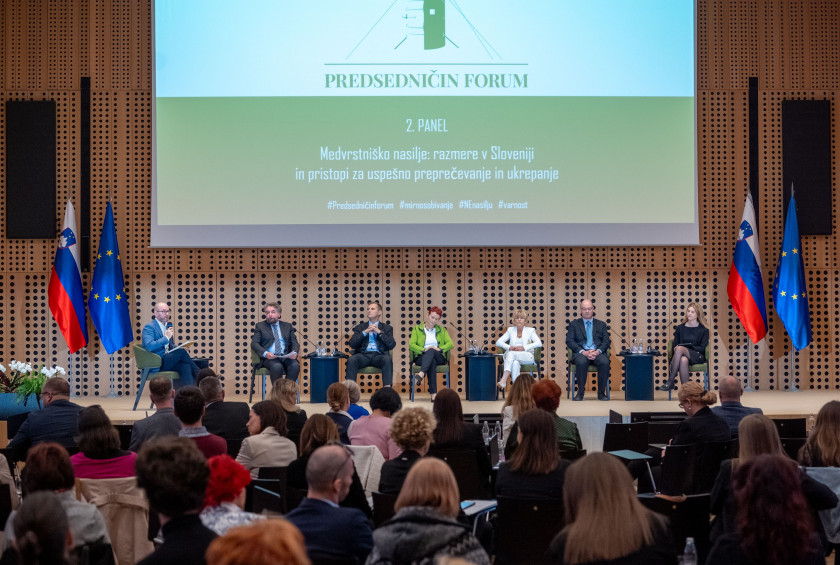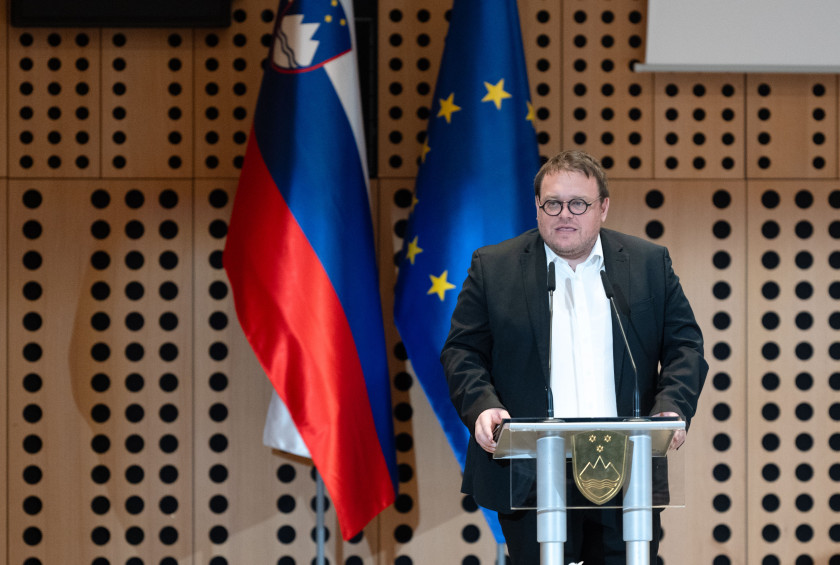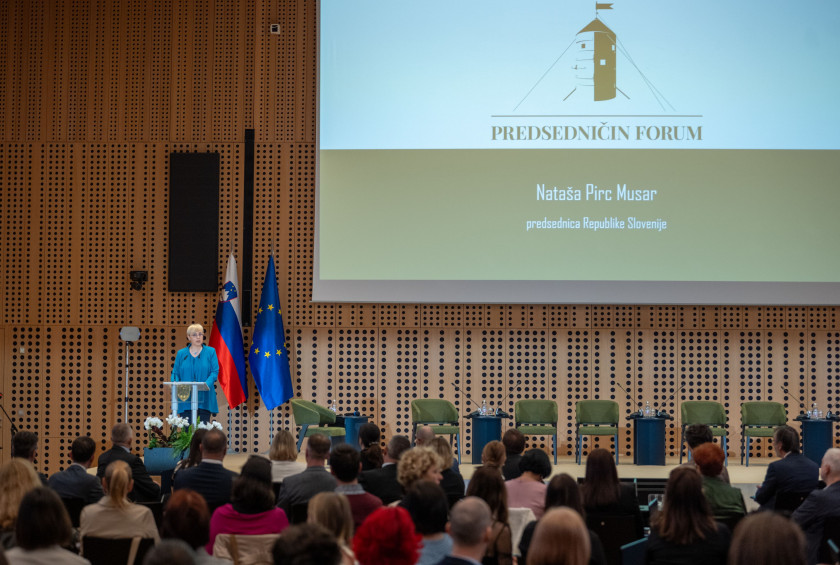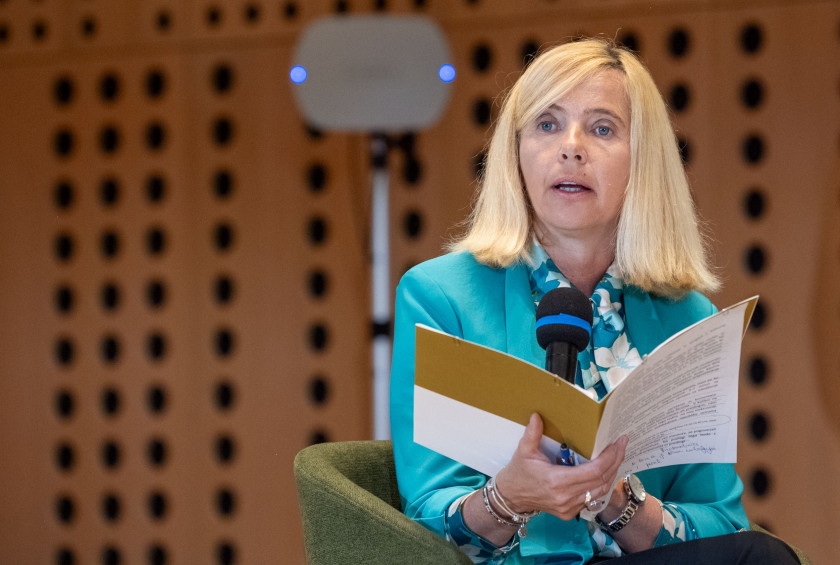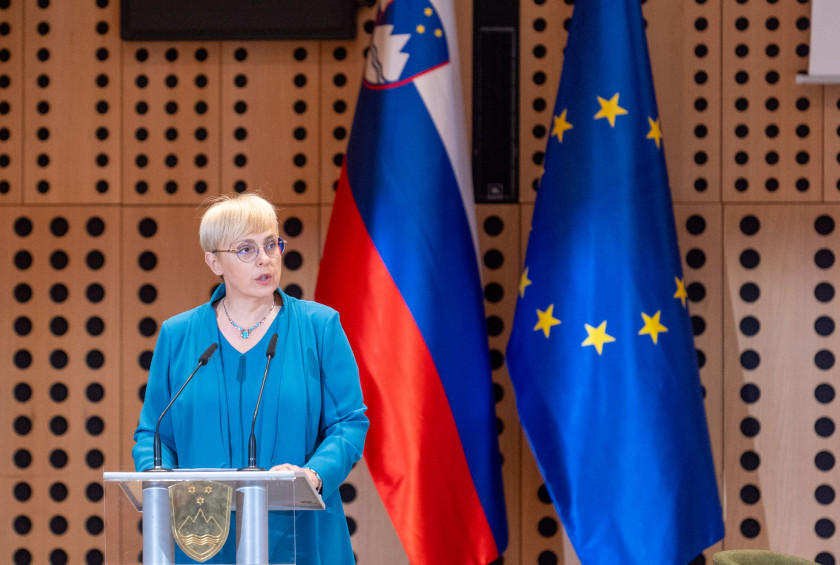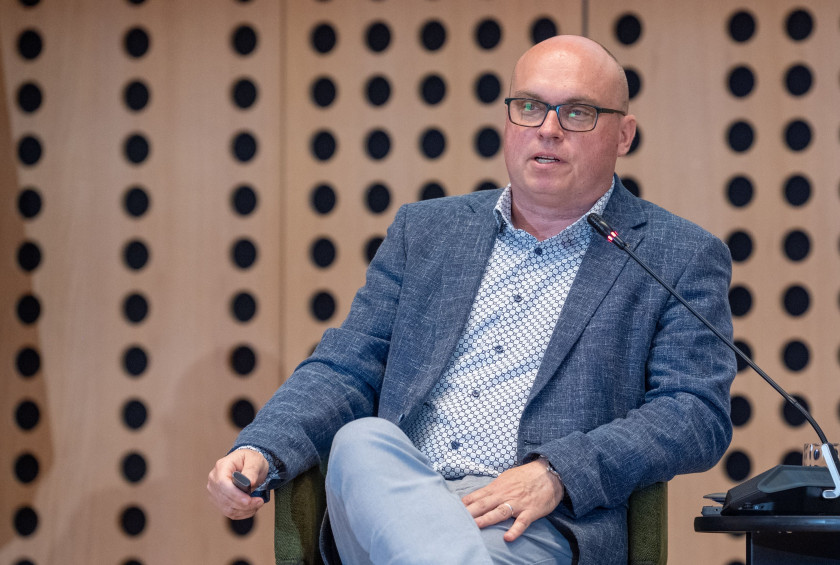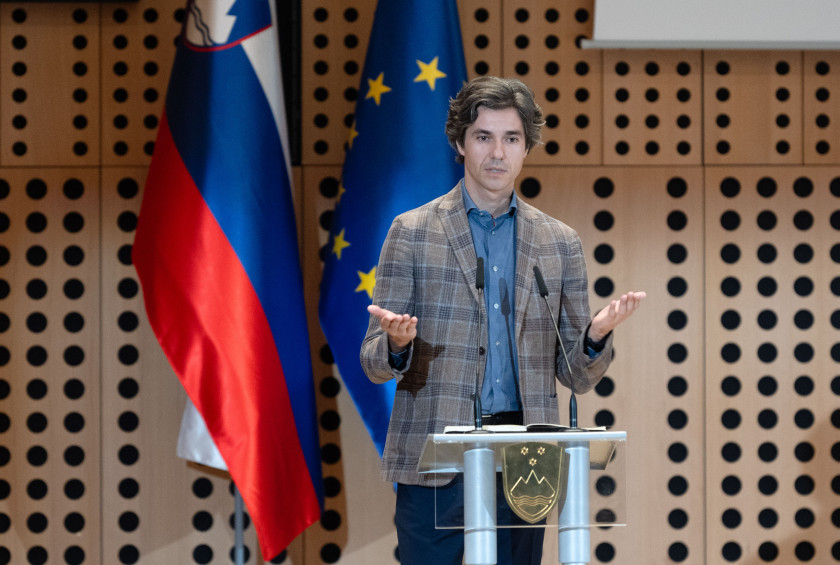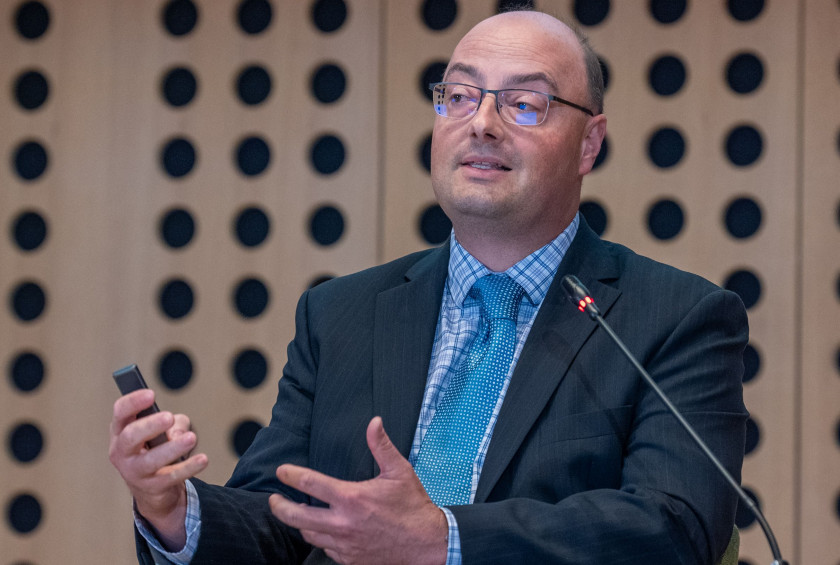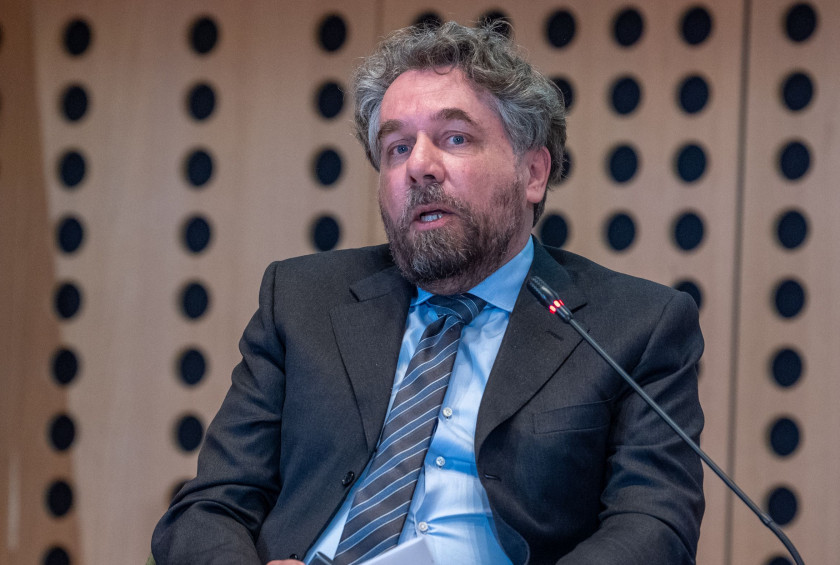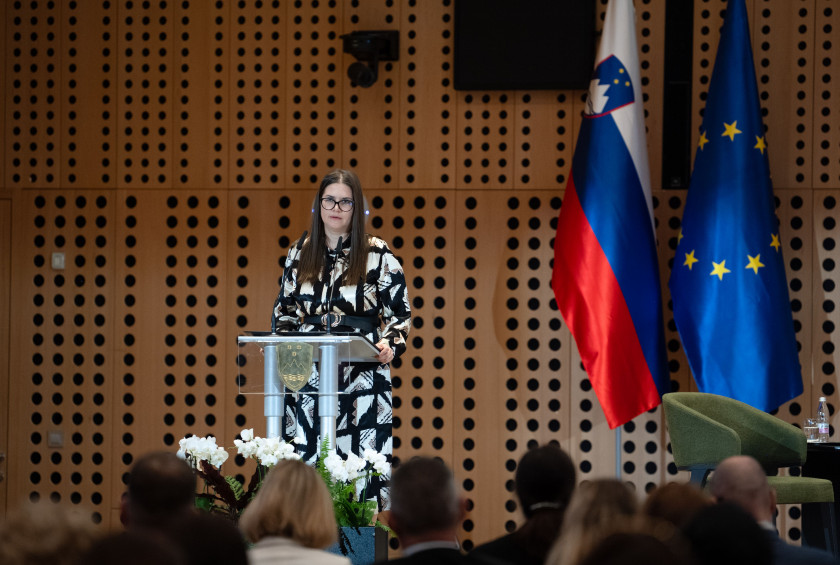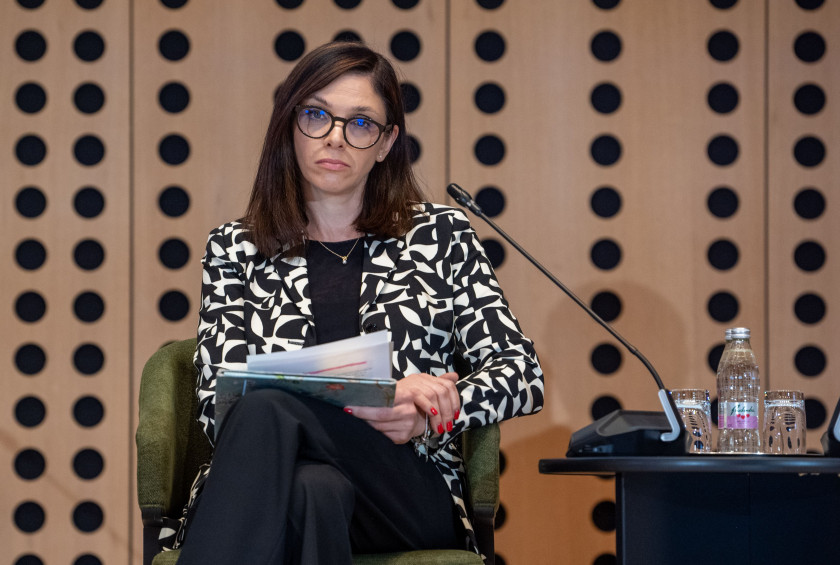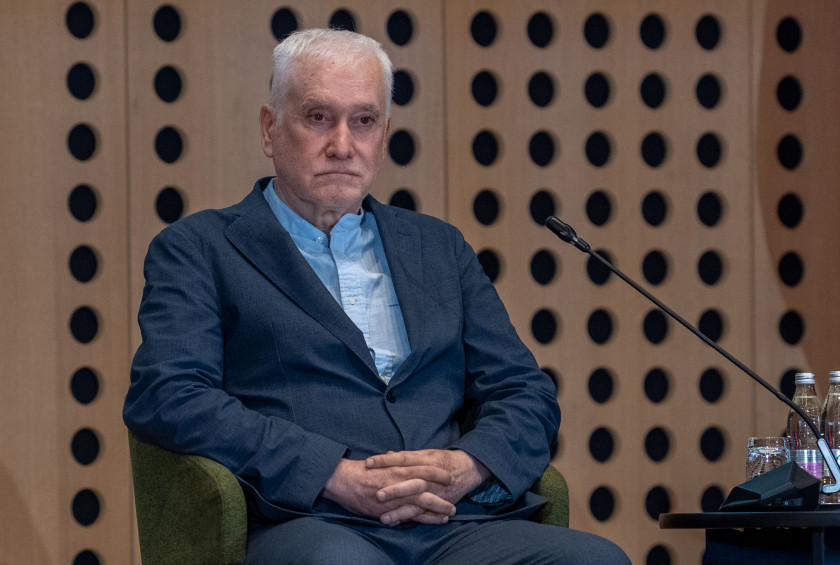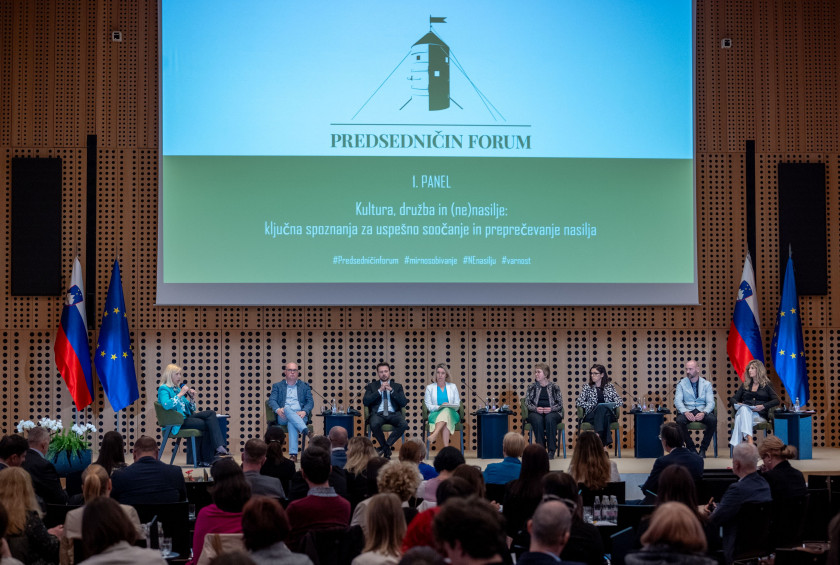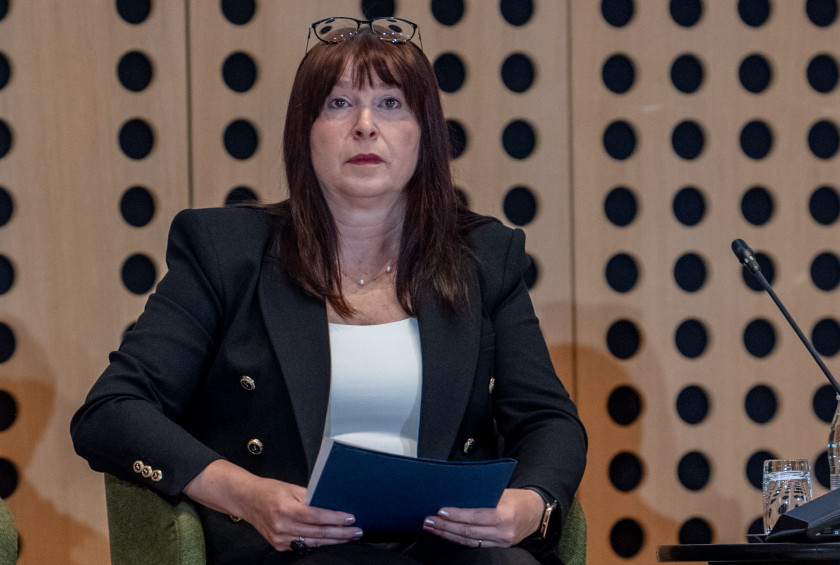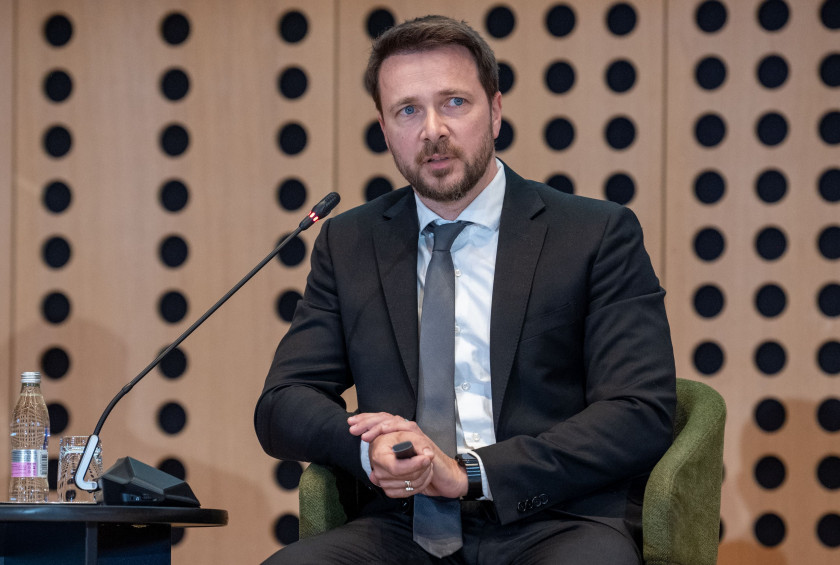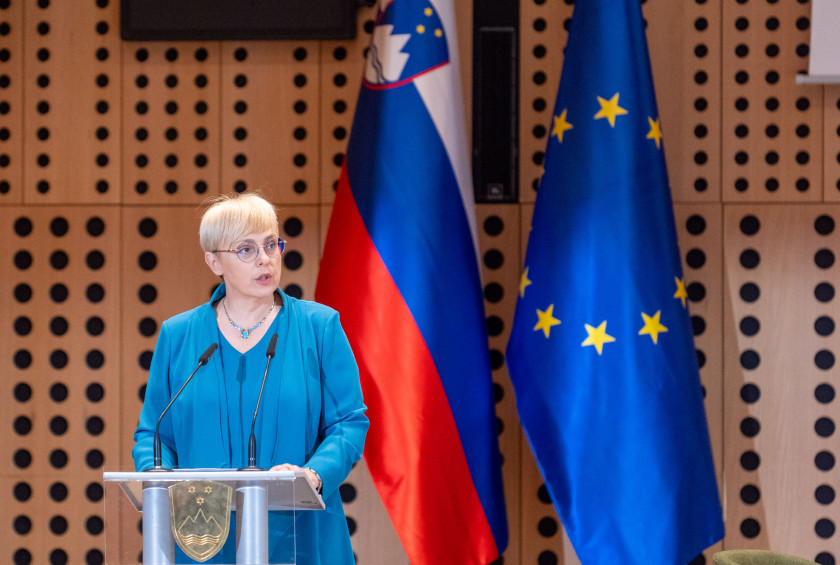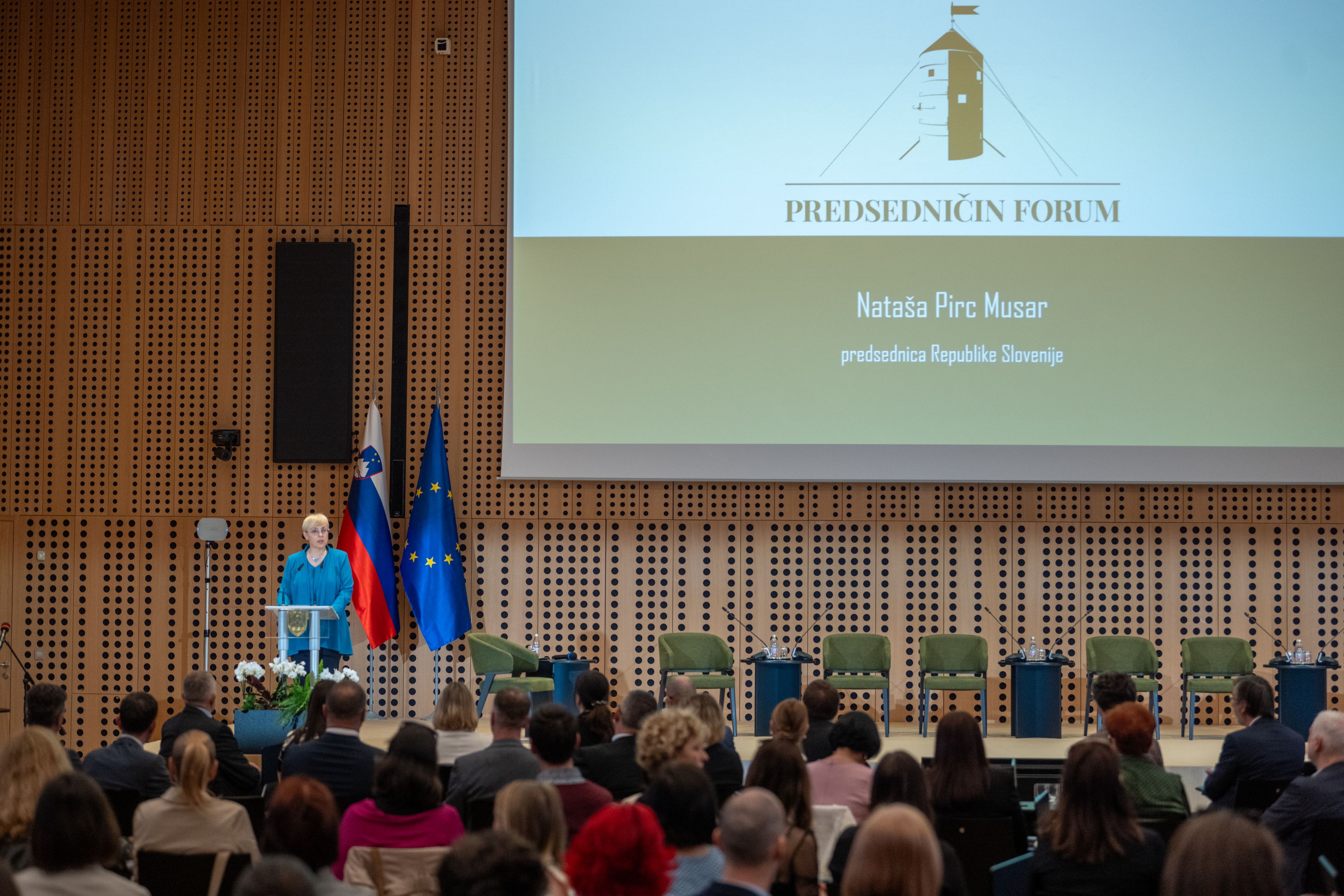
3rd President’s Forum on non-violence: A centralised, professional and systematic approach is urgently needed
How to ensure the conditions for peaceful coexistence among people and the fundamental right to safety was the question discussed at today’s 3rd President’s Forum at the Brdo Congress Centre at Brdo pri Kranju by 19 speakers, experts from various fields. Drawing overwhelming interest, the Forum was attended by decision-makers, representatives of competent ministries, organisations and services, headteachers, and students. Many people tuned in for the live broadcast.
Brdo pri Kranju, 15 May 2024
The biggest challenge and threat to peaceful coexistence are posed by various forms of violence with multi-faceted consequences, affecting and leaving a negative mark on individuals, families, groups and the whole community. Violence reduces people’s quality of life, preventing both individuals and society as a whole from realising their potential. Modern societies have developed various institutional approaches to preventing, addressing and penalising violence and eliminating its negative consequences. Practical experience and research findings show that some of these approaches can be successful in preventing violence and reducing its consequences. But most importantly, addressing and tackling violence requires a comprehensive, planned and carefully considered approach.
Today’s President’s Forum offered a clear insight into the cultural characteristics of violence and society’s attitude towards it, focusing on three types of violence: domestic violence, peer violence and violence against the elderly. It featured three panel discussions with findings, challenges and recommendations for successful prevention and improvement measures presented by a number of researchers from various scientific fields and professionals with first-hand experience. Their message is clear: every missed opportunity means a new victim and more suffering. It is therefore essential to find appropriate responses, listen to the experts and implement measures for the successful prevention of violence and protection of victims. As a society, we have a duty to do everything we can to improve the situation. That is our responsibility to each other and to future generations. As Slavoj Žižek says in his book Violence, "Sometimes, doing nothing is the most violent thing to do." This opinion is shared by the President of the Republic of Slovenia, Nataša Pirc Musar.
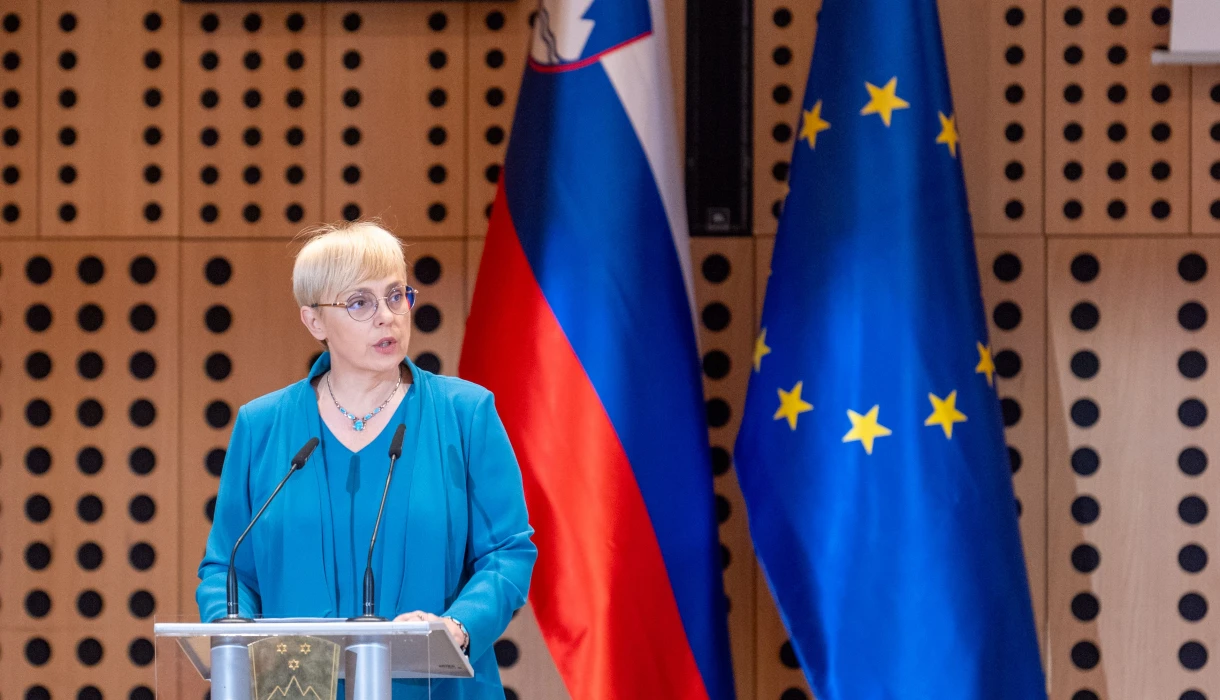
"Today’s Forum provided a clear insight into the issue of violence in our society and highlighted its complexity. Nevertheless, the experts’ words can serve as an important source of optimism. Violence is not an unknown phenomenon whose understanding and causes escape us. Quite the opposite. As can be discerned from the words of researchers and experts, practical experience, and public discussion, we have the knowledge, we understand the priorities and we know the approaches that bring results. Violence can be prevented, but it is unreasonable to expect that we can end it completely. No one is promising that. However, if successful approaches, programmes and measures do exist to prevent violence and help victims, families, parents, children, pupils, women, the elderly, other vulnerable groups and the whole community, it is our duty to take a step forward. It is our duty to act. And we must do so now."
The President added that "Another key aspect is building a negative attitude towards violence, in which each of us has an important role. We have to talk about violence, raise awareness and take a clear negative stand towards it. We must not justify, relativise or legitimise it. At the same time, it is essential that we support the victims, understand them and refrain from judgment. We have to let them know that the community is on their side."
|
On the basis of today's President's Forum, four general recommendations were drawn up to assist the relevant expert departments and institutions in addressing the shortcomings identified: 1. Systemic and coordinated cooperation between key institutions must be established immediately. Based on the findings of researchers and experts, these institutions will develop and implement effective prevention programmes and assess the shortcomings of existing measures that need upgrading. Emphasis must be placed on setting up a system for and implementing effective prevention programmes. Cooperation between the institutions of various sectors is of central importance to preventing and addressing violence. While such cooperation is already required and prescribed in certain cases at the local level (e.g. by the Domestic Violence Prevention Act), practice shows that it is not always implemented. More efforts must therefore be devoted to establishing bodies that will be active in this area, bringing together all relevant institutions at the local, regional and state levels. A specialised state body must be established to draft concrete guidelines and recommendations to develop policies and measures for a systematic approach to 1) violence prevention and 2) taking action and providing assistance in the event of violence (providing protection and help for victims, other participants and family members and the effective treatment of perpetrators of violence). While the interministerial working group on violence is the first step in this direction, this approach must be upgraded. It should bring about appropriate amendments to legislation in all areas of work. 2. To gain a clear picture of the various forms of violence and their incidence rates and causes, systematic empirical studies must begin immediately, giving priority to peer violence, domestic violence and violence against the elderly and other vulnerable groups, as well as workplace violence. This recommendation follows the WHO guidelines (2015), which clearly state that successful action is contingent upon carrying out a systematic collection of data on violence, identifying its causes, developing solutions, measures and prevention programmes, and, finally, evaluating them. Slovenia is lagging behind in this area, as the data is either extremely scarce or decades old. 3. Constant training must be ensured for workers who come into contact with potential and actual victims: teachers, school staff and management, social workers, police officers, healthcare professionals, prosecutors, and judges. Training must be professional, continuous and adapted to the nature of the work. A special emphasis should be placed on training first responders, whose priority must be protecting the victims of violence. Additional training must be provided for parents, families, children and young people to raise awareness on dangers, risk factors and types of assistance. Such training must go beyond sporadic measures and one-time workshops, forming part of a comprehensive approach to awareness-raising, prevention and the fight against violence. 4. Another key aspect is building society’s negative attitude towards violence, in which everyone has an important role. Each of us is a role model to someone (as a parent, teacher, athlete, etc.), but a particularly important role is played by opinion leaders, holders of socio-political power, people with a public voice and the media. It is important to talk about violence, raise awareness and take a clear negative stand towards it, while not justifying, relativising or legitimising it. At the same time, it is essential that we support the victims, understand them and refrain from judgment. Young people always say that we must start listening to them, hear them and, above all, build trust for them to talk about the violence that they experience (or commit). |
